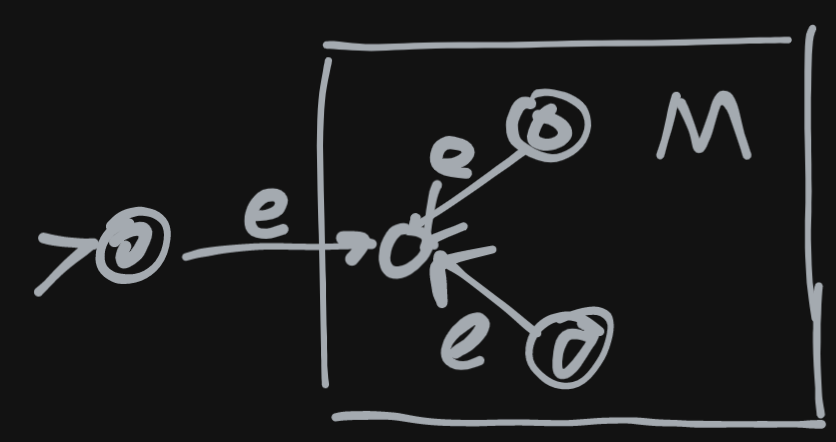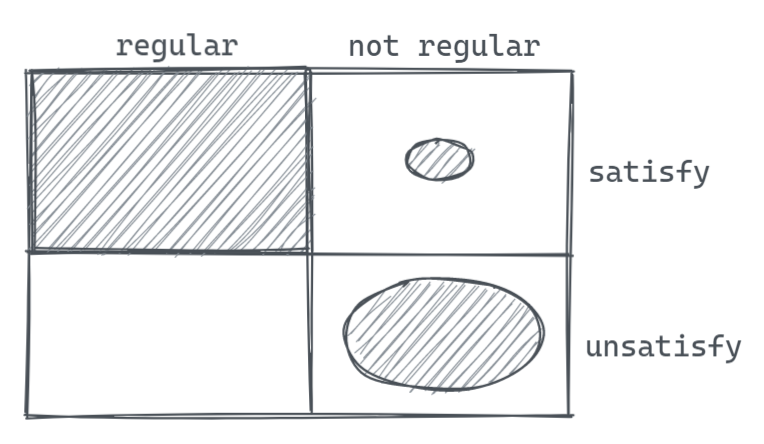Regular Expression(REX)
Basic concepts and properties
A language is regular if it is accepted by some FA(Finite Automata)
-
Regular Operations
- Union:
- Concatenation:
- Star:
- Union:
-
The class of languages accepted by finite automata is closed under:
- Union
- Concatenation
- Star
Provement of Union
Provement of Concatentation
Provement of Star
额外构造一个初始态,表示接受空串

- Atomic
: :
- Composite (
) : : :
- E.g.
Equivalence of REX and NFA
- REX -> NFA
Operations of Union / Concatenation / Star can be easily represented by NFA. - NFA -> REX
- Let
- Base case (
) - if
: - if
:
- if
- Goal:
-> - Recurrence:
- Let
Pumping Theorem
Let
- for each
,
e.g. for
The relationship between pumping theorem and regular

Example: Prove
Assume that
(1)
(2)
(3)
(2)(3) ->